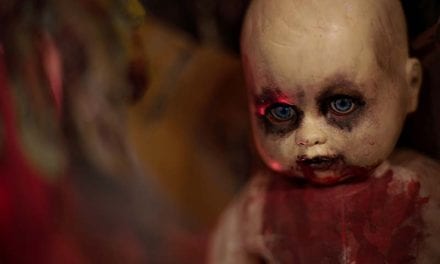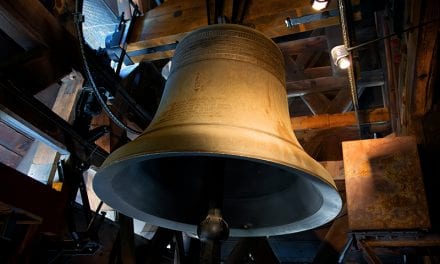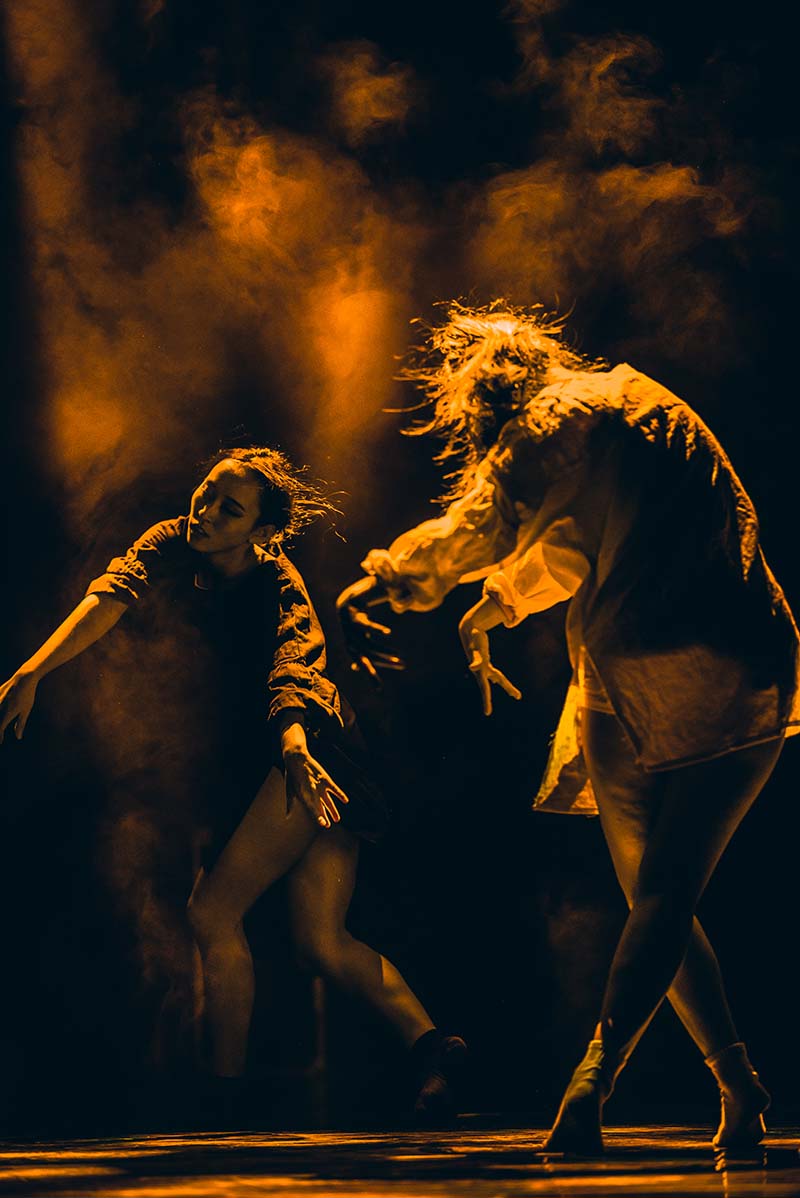“You’re sure?” Dr. Kober asked, his pencil hovering above the pad like a honey bee over a flower.
“Of course, I’m sure!” Cecil answered. “Do you have cotton in your ears?”
“No need to raise your voice.”
“Then maybe you should try listening the first time. Ever think of that?” He settled back in his chair, fussing with the wrinkles in his slacks and murmuring to himself. “Why are we going over this, anyway? I already talked to the police. You know what they said? You know what they said?”
Dr. Kober raised his eyebrows. His face was tranquil, undisturbed by the old man’s outbursts.
“Said I misplaced it, that’s what they said. Think I’m an old fool! Think just because I wear dentures I don’t know a button from a zipper!” He tapped his fingers on the arm of the chair and added conversationally, “It’s a three by four, you know.”
“And when did you say you realized it was missing?”
Cecil sighed. His face settled into a tired frown as he repeated the story.
“I woke up in the middle of the night – maybe two or three, I don’t remember – and I wandered past the studio. I was heading downstairs to fetch a glass of—” his eyes cut to the doctor, “water. And when I glanced into the studio—poof! It was gone.”
“What’s your poison, Mr. Vossen?”
“My poison? I don’t drink paint, if that’s what you mean.”
Dr. Kober leaned back and folded his legs. He interlaced his hands in his lap, ready to wait his opponent out.
Finally, Cecil gave a sullen shrug. “Wine—Cabernet when I have it, all right? Happy? It’s only to help me relax—I’m not one of those winos you see downtown, piss-drunk under a bridge with folded cardboard for a pillow. I have a routine, a very good routine. It’s important for my work. You can look that up. The first glass takes my mind off work, the second takes my mind off the neighborhood punks (they’re always playing hockey in the street, like they think they own the damn thing), and the third—well, by that time all the lights on the street are out, and I like to go in and check on my darlings.”
“Your darlings?”
“My paintings.”
“I see. And you like to check on them, because—”
“They’re worth a fortune, you see—well, haven’t sold any in a few months, granted, but it’s the market—people don’t appreciate real art like they used to, prefer something small and cute they can tuck between the silverware display and Aunt Ellen’s famous brownie recipe. Makes you puke just to look at them, the little blushing apples and the cherubim kids and the butterfly merrily floating nearby, never really going anywhere and not wanting to.”
Dr. Kober waited patiently for this tirade to end. Then, he said, “You check on them because you’re afraid—”
“Thieves,” Cecil answered with a savage twinkle in his eye. “And I was right. Snatched one of them in the middle of the night, the devils.” He leaned forward and added in a low voice, “Did I mention they play hockey in the street?”
A long silence followed. From the hallway came a hearty sneeze followed by a sharp sniff. The doctor pursed his lips and asked, “Have you ever considered the alcohol might be keeping you up?”
“Everyone drinks wine at night. It’s good for digestion—just ask one of those trashy magazines you keep in the lobby.”
The doctor blinked patiently. “That may be true—the digestion part, at any rate. But studies show—“
“You fancy doctors,” Cecil sneered. “Mention I have a little trouble now and then sleeping through the night, and the next thing I know, you’re measuring me for a straitjacket.” He pulled a cigarette from the packet of Chesterfields in his breast pocket.
The doctor frowned. “You can’t smoke that in here.”
“Don’t you have a prescription to write?”
“You do understand it’s up to my discretion, don’t you? Whether I fill the prescription or not?”
“You confound me,” Cecil answered, lighting the cigarette and leaning back. “A doctor who doesn’t want to give his patient pills—that’s a new one. But you’re all just ‘practicing,’ aren’t you?”
The doctor squinted at him over his glasses. “Mr. Vossen, I am only interested in your best interests. Mixing drugs and alcohol is never a good idea.”
“Look at you, all high and mighty. I’ve been coming here—let’s see now—”
“Three weeks.”
“Three weeks!” Cecil pulled his lips down in a sour grimace. “Always the same routine: ‘Do you want to talk about your parents? Do you regret that you never married? How do you feel when you see a couple walk by with a stroller?’ You disgust me, you and your psychiatry bullshit. I really wish you could just stick me with a needle and be done with it, like a real doctor.”
Dr. Kober sat back in his chair and looked out the window. He had a good view of the interstate, which was backed up like a constipated colon. His eyes lingered. Perhaps, he was envying the trapped drivers.
“You know, Cecil, there’s an unwritten contract that when someone comes in here and sits in that chair, they get to say whatever the hell they want to me. Putting up with you these past few weeks has pushed me close to tearing apart that contract.”
He picked up a pen and pointed it at Cecil. “The only reason I’m thinking of signing this is because I think you need help, and I think these outbursts are the only way you know how to communicate.”
“Spare me.”
“No, I want you to listen. If I sign this prescription, you need to cut back on the drinking. One glass a night at most, and nothing within two hours of taking these pills. If there’s something left in your glass, you go on and pour it down the sink.”
“And if I still have trouble sleeping?”
“Take a walk. Turn on the TV—no, better yet, find a good novel. Do we understand one another?”
“Perfectly,” Cecil answered with a thin smile.
Dr. Kober grunted and scribbled his signature. He pushed the prescription across the desk. “Take one – two at the most – and only when you’re having trouble sleeping. If the problem clears up on its own, stop taking them. It’s not uncommon to find them addictive.”
“Now, I’m a junkie, huh?” Cecil muttered under his breath as he snatched the paper. He sauntered to the door, rested his hand on the frame, and looked back. “What gave me away?”
Dr. Kober smiled. “Saw you coming out of the liquor store last week.”
~~~OOO~~~
That evening, after a tedious afternoon spent cleaning the gutters with a trowel and bucket, Cecil uncapped the prescription bottle and spilled the pills onto the Formica counter, catching one as it wheeled itself over the edge.
Thirty pills. A small supply, certainly, but perhaps enough to suit the purpose. As soon as he finished his latest painting, he would have all the time in the world – and probably the money, as well – to do whatever he pleased. It would be a masterpiece—if only he could focus long enough to finish it.
The pills were oblong and blue, with faint numbers scratched into them like ancient hieroglyphics. He popped two into his mouth and, raising his glass in salute, downed them both with a heroic swallow of Pinot Noir. A pleasant tingle ran along his jaw, and he licked his lips in satisfaction.
Time to wait for the little buggers to kick in.
The two-storey Victorian, set in a strip of untouched forest along a country road disturbed only by the local hoodlums and the occasional jogger, had belonged to Cecil since he was twenty years old. He and his erstwhile fiancée, Jane Rosland, bought the house in preparation for their future together, thinking nothing in the world could sever the bonds of their eternal love. It turned out that cussing out your fiancée in front of her parents was enough to do the job.
Still, Cecil did not regret buying the house. It was his nest now, his fortress—and, more importantly, his private museum.
As he waited for the pills to begin their work, he drifted through the downstairs rooms, each of which boasted a distinct character. In the first room, situated to the right of the front door, hung his earliest and most experimental works, when he had flown from one subject to the next with scarcely a breath between: the forked birch tree in his parents’ backyard, the black dog who wore no collar and visited their property just long enough to trample Mrs. Vossen’s peonies, the treacherous rope swing Cecil was always begging his father to repair. The paintings, mostly watercolors, were fuzzy snapshots he had never taken the time to finish, always distracted by the next burst of inspiration that came along.
Looking at these paintings now, a faint smile came to Cecil’s face. He had been happy then, even if he had not known it.
The second room took him into his teenage years, when he had begun lessons with a neighborhood artist and first tried his hand at oils. Guthrie, tilting his head back to study Cecil’s work, would bully a Werther’s in the side of his mouth while his white hair whipped and frothed in the summer breeze. “You’ve got something there,” he would murmur; or “You need to be more careful sketching it out next time.” Once, while pouring tea, Cecil heard Guthrie tell Mrs. Vossen that Cecil had real potential, could maybe even make a career of it if he went to the right school. Mrs. Vossen only laughed and asked if Guthrie wanted one spoonful or two.
Despite the warning signs, not least of which was Mr. Vossen’s perpetual inability to hold a job, Cecil’s happiness had persisted. It would continue to do so until the day of the carnival.
As Cecil followed the hall to the third room, he had a sharp memory of tugging on his mother’s dress as she sliced through a watermelon on the counter.
“Please, Mom, please can we go? Dylan’s going, and he says there’s all kinds of cotton candy, and you don’t have to go on the big rides if you don’t want to, but there’s a pirate ship that swings you up in the air, and it goes so high you nearly flip over backward if you don’t hold on—”
“Okay!” his mother cried, laughing as she set down the knife. “You’re preaching to the choir, honey. I’ve always had a sweet spot for the animals, especially the elephants.”
Mrs. Vossen, however, never got to see the elephants. That very day, while driving to the grocery store for deli meat so they could have a picnic at the carnival, a bridge on a rural road gave out, plunging her and her minivan into the river below. The papers would later say a steel I-beam had given out—something about poor quality steel and corrosion. All Cecil knew for sure was that his mother was not coming home.
Cecil’s father, grim and sour-smelling in the black suit he wore for a straight week after the funeral, caught Cecil throwing rocks at a woodpecker and called him up to the porch.
“Why you moping around like that, boy?”
Cecil shrugged, as he often did in answer to his father’s questions.
Something wicked glinted in Mr. Vossen’s bloodshot eyes. “You angry about the carny, that it? Angry Momma got herself killed, and now you ain’t gonna get to ride the pirate ship?”
“I don’t know,” Cecil mumbled, unable to articulate the complexity of feeling his father’s words provoked. He did know he was not angry at his mother, but it was not unfair to suggest he was angry at somebody.
“That’s it, all right,” Mr. Vossen said with a wise nod. “I can see the anger in you. You gotta draw it out, just like sucking poison from a snakebite. Just so happens, I know how to do it.”
Rising, Mr. Vossen told Cecil to put his shoes on. They were going for a drive. It was not until twenty minutes later that Cecil, with dawning horror, realized his father meant to make good on his wife’s unfulfilled promise.
For the next four hours, until the sky bled gray and the turnstiles stopped clicking, Cecil dutifully followed his father from one exhibition to the next. They watched the clowns, rode the roller-coaster, threw darts to win a zebra plush toy, ate copious amounts of popcorn and cotton candy (despite Cecil’s insistence he was not hungry), and finally rode the pirate ship.
“Don’t you feel better now?” his father asked after their third straight ride on the pirate ship.
“Yes,” Cecil answered softly, realizing that anything his father believed was true, and if it weren’t, he would make it so. “Can we go home now?”
“Just so long as you learn your lesson. Next time, don’t go asking your Momma to take you to some stupid carny. Ain’t nothing here but stupid tricks for babies.”
It was not until Cecil was older that he realized how thoroughly his father had blamed Mrs. Vossen’s death on him. When Mr. Vossen died of untreated pneumonia seven years after the night of the carnival, Cecil felt as if a terrible weight had been lifted off his shoulders.
Tucking away these painful memories, Cecil entered the third (and final) room of his first-floor museum. Here, marooned beneath cones of hooded light, stood the treasures of his adult life. Most were portraits. Sometime after his mother’s death, he had become increasingly interested in the workings of the mind. He would watch people interact, convinced he was capable of reading their thoughts. His job, he told himself, was to write those thoughts on canvas in the eyes, mouth, nose, and other features of those he portrayed. He had a gift for bringing out the hidden qualities others could not express, though people recognized them at once on the canvas.
Unlike the vibrant greens and yellows of his earlier works, here the palette grew darker and a gray tone seeped through every subject. Studying them now, he wondered how different things might have been if he had never tugged on his mother’s dress in the kitchen that day.
Lost in his thoughts, Cecil was surprised to find his gaze creeping to the closet door at the back of the room. He slipped his hand into his pocket and jiggled the keys buried among the coins. His mouth had gone dry and sour, and as the dullness of the pills began to creep across his mind, he heard the subterranean beat of his heart like the far-off pounding of a fist on a door, demanding entry.
The wind shuddered against the house, rattling a loose window sash.
Got to fix that, he thought, leaning toward the hallway. He took a step and felt his body escape the gravitational pull of the door. As he reached the stairs, he laughed suddenly.
Someone would think there’s a body in there, the way you keep away from that room.
It was not a body concealed by the door, but a nightmare—a series of nightmares he had felt obligated to paint, and could not convince himself to throw out. If anyone decided to break in there, they were welcome to what they found.
At the top of the stairs, Cecil made one more detour. The studio, situated opposite his bedroom, was lined with his most recent works. Among the still lives and landscapes, a series of self-portraits – some in color, some only sketches, but none finished – leaned against the baseboard. They were his offspring, the part of himself he would leave behind to a world that had never loved him.
His darlings.
And though each one had proved a disappointment so far, it did nothing to cool his conviction that the next one would prove a masterpiece.
The next one would make him great—or, rather, show the world how great he already was.
Staring down at the shadowy imitations of himself, however, he felt not pride but a vague stirring of unease. He could not put his finger on it until later. After lying sleeplessly in bed for two hours, the realization came to him, and he sat upright in bed.
The numbers of the clock, ghostly as tail lights on a misty road, red 2:11. The moon hid its face behind clouds, and the room plunged into darkness.
After switching the table lamp on, Cecil slid his legs out of bed and stuffed them into the slippers waiting below. His dream, like a midnight tide, kept pulling out and then washing in again with fresh glimpses: a beaten path winding past concession stands, an unmoving Ferris wheel parked beneath a pumpkin moon, and behind Cecil – close on his heels – a jiggling, giggling menace that plodded after him with huge strides.
By the time Cecil reached the hallway, however, the images had vanished, and when he entered the studio, he had forgotten the dream entirely.
The portraits lay against the baseboard, gleaming oddly in the cushioned glare of the directed lights. It took only a glance to tell him he had been right.
Another portrait was missing.
Stepping back, he leaned against the firm edge of the cabinet, whose drawers contained most of his tubes of paint. What troubled him most was not the absence of the painting but the realization that two had gone missing in as many nights. It was possible, though unlikely, to imagine he might have misplaced one. But not two. Which meant that someone had crept into his house and taken the painting from right under his nose.
“Measly skunk,” Cecil muttered, his fists hooking into claws. “Think you can take what’s mine?”
Fueled by rage, he flew from room to room, checking the locks on the windows and searching every dark corner where an intruder might hide. He repeated the process downstairs, rattling the front and back doors twice to assure himself nobody had broken in.
The grandfather clock tolled hollowly: once, twice, thrice. He had searched the house for nearly an hour without finding any sign of the intruder. There was nothing to do now but call the police in the morning. Again.
In the meantime…
Drifting into the kitchen, he poured himself another glass of wine and made his way back upstairs. As he passed the studio, he felt a chill. The moon had come out again, and the light played strange tricks on the portraits. They seemed almost to be moving.
One by one, Cecil turned the portraits to face the wall.
~~~OOO~~~
The next evening, Cecil pulled the curtain back to watch the hockey gang stroll off, disappearing behind a gnarled maple situated on the corner.
“Skunks,” Cecil murmured. He knew they had taken the two paintings, just as he knew they would return—as soon as he fell asleep. He was not sure how they knew when he was asleep, but they did.
Instead of undressing for bed that night, he flicked off the lights and picked up his father’s old baton. It was a stout piece of ash, polished by his father’s hands back when he used to walk the beat, before losing his job – along with several other officers – in a statewide overtime scam. It would be more than enough to run off a few teenage punks—after all, he knew firsthand the pain it could deal.
He pulled his rocker to the top of the stairs and sat down. A storm was picking up outside; the wind pushed against the house, shook the oak whose branches dangled over the roof, plowed through drifts of leaves and sent them tumbling through the air. Cecil rested the baton across his knees and stared toward the bottom of the stairs, where a window revealed a square of gray floorboards. Anyone climbing the stairs would first have to pass through that square.
“Let them come,” Cecil whispered to the storm. As if in answer, there was a soft tap on the window. The rain began to fall in steely sheets, pooling in the street and pulling sluggishly toward the drains.
Something stole across the lawn. Cecil pressed his face to the glass.
Only a cat, he thought, settling back. When he returned his attention to the stairs, he noticed a spot in the square of light at the bottom. Rising, he placed his hand on the railing and descended. A brilliant flash of lightning punctured the house, dazzling his eyes.
On closer inspection, he realized it was not a spot on the floor but a small pool. He stooped and touched the liquid with one finger.
“Paint,” he murmured.
A trail of smaller spots led into the next room. Baton in hand, Cecil followed.
The drops skirted the table, staining the rug as they traced a right angle toward the locked door at the back. The door stood open, revealing bare shelves populated by the cocooned corpses of dead insects. A drift of dust lay on the ceramic tiles.
The lightning came again before Cecil had worked up the nerve to switch on the light. The room was empty. Of the dozen or so paintings he had hidden in there, not one remained.
The baton in Cecil’s hand began to tremble.
Oddly enough, the voice behind him did not surprise him. It was as if he had known someone was there all along.
“How do you like connecting the dots, little Ci-Ci?”
The voice gushed with good cheer. Turning, Cecil’s eyes took in the apparition behind him. The front of its suit was dotted with colorful buttons that strained to contain the clown’s considerable girth. Its hair was the maroon of young poison-ivy. It was the face, however, that most interested Cecil. He had painted that very face only a week earlier. Now, it leered hideously at him through a pasty mask, a dark twin of his own reflection.
“Get away from me, you abomination!” Cecil cried, waving the baton as he darted behind the table.
The clown gave a deep, throaty laugh. “Don’t you want to see the carny, little Ci-Ci? I bet your mother’s just dying to get in!”
Cecil rushed to the end of the table. The clown mimicked him, blocking his escape. Cecil hurried back to the other side, and once again, the clown confronted him, opening its arms for an embrace.
“Don’t you want to take a picture with the clown, little Ci-Ci?”
Suddenly, Cecil was filled with a dark fury at this imposter masquerading around with his face. Uttering a wordless scream, he charged around the table and brushed past the clown, feeling a gloved hand slip off his shirt as he passed through the doorway.
Up the stairs he ran, climbing the steps two at a time. Sweat broke out on his brow; the drumbeat of his heart drowned out the storm.
He reached the hallway and skidded to a stop, staring bug-eyed at the shadow hunched against the frame of his bedroom doorway. Two eyes burned like coals over a pair of curving tusks. Between these tusks, a knot of tentacles weaved and wavered through the air, as if searching for him.
Groaning, the elephant lowered its head and peered at him. The face, though covered in tough gray leather, was unmistakably a copy of Cecil’s own.
“Didn’t you want to see the elephant with Mommy?” the clown called gleefully up the stairs. “Well, there he is! Why don’t you climb right up on his back?”
With a strangled cry, Cecil rushed into the studio and slammed the door. He placed his back to it.
“Let’s just see you get inside now,” he said, but there was no strength left in his voice. He flipped on the light and saw, to even greater horror, that every single portrait was missing.
The door thumped insistently against his back. A hairy claw danced a rhythm on the window.
“This can’t be happening; this can’t be happening!” Cecil moaned, clutching his head. “You’re not real!”
A shape rose from behind the desk. It was a man dressed in a rumpled black suit with greasy hair finger-combed to the side. The shape advanced, solidifying more with every step.
“Impossible,” Cecil whispered.
“You just had to see the carny, didn’t you?” Mr. Vossen said, his face a mask of running colors. “You just had to have things your own way.” He lifted a painting knife off the desk. “Time to cut that anger out of you.”
As Mr. Vossen’s outstretched hands neared him, Cecil realized that he had in fact succeeded in his efforts. He had created a masterpiece, a perfect representation of himself. He had drawn out the part of himself nobody else could see.
“Time for your final lesson,” said the doppelgänger that was also his father. Wet, gummy hands wrapped around Cecil’s throat.
The light flickered and went out.




















